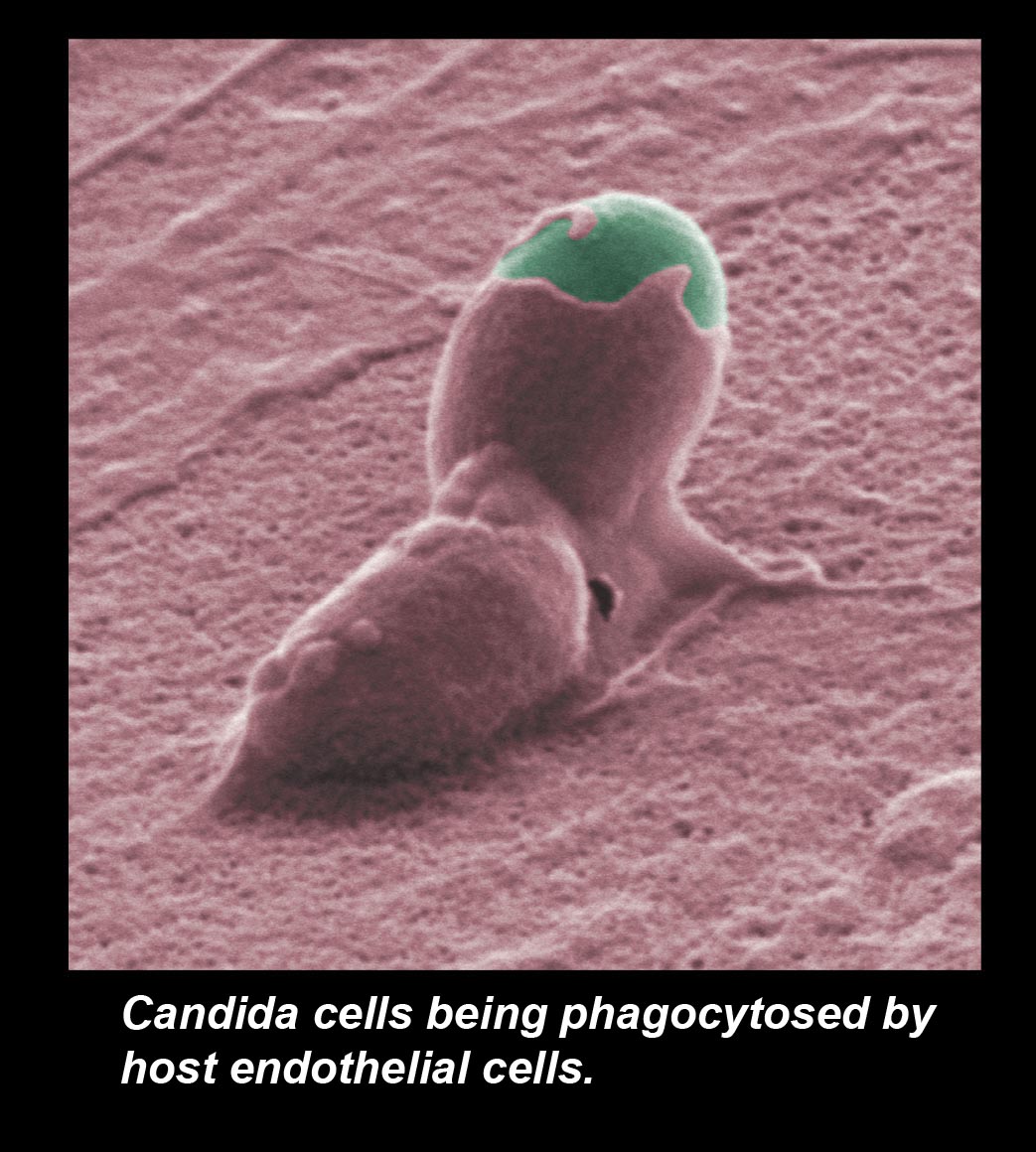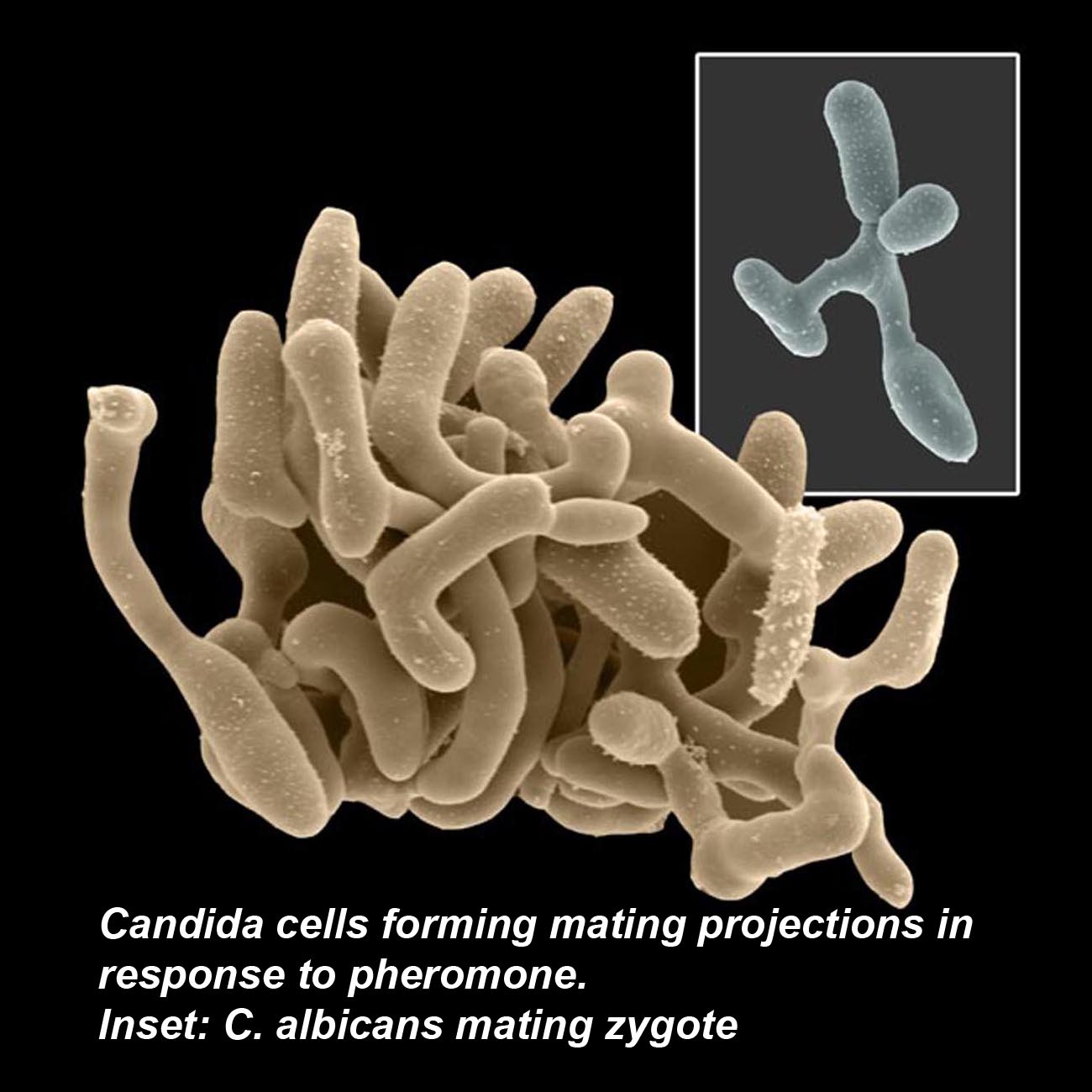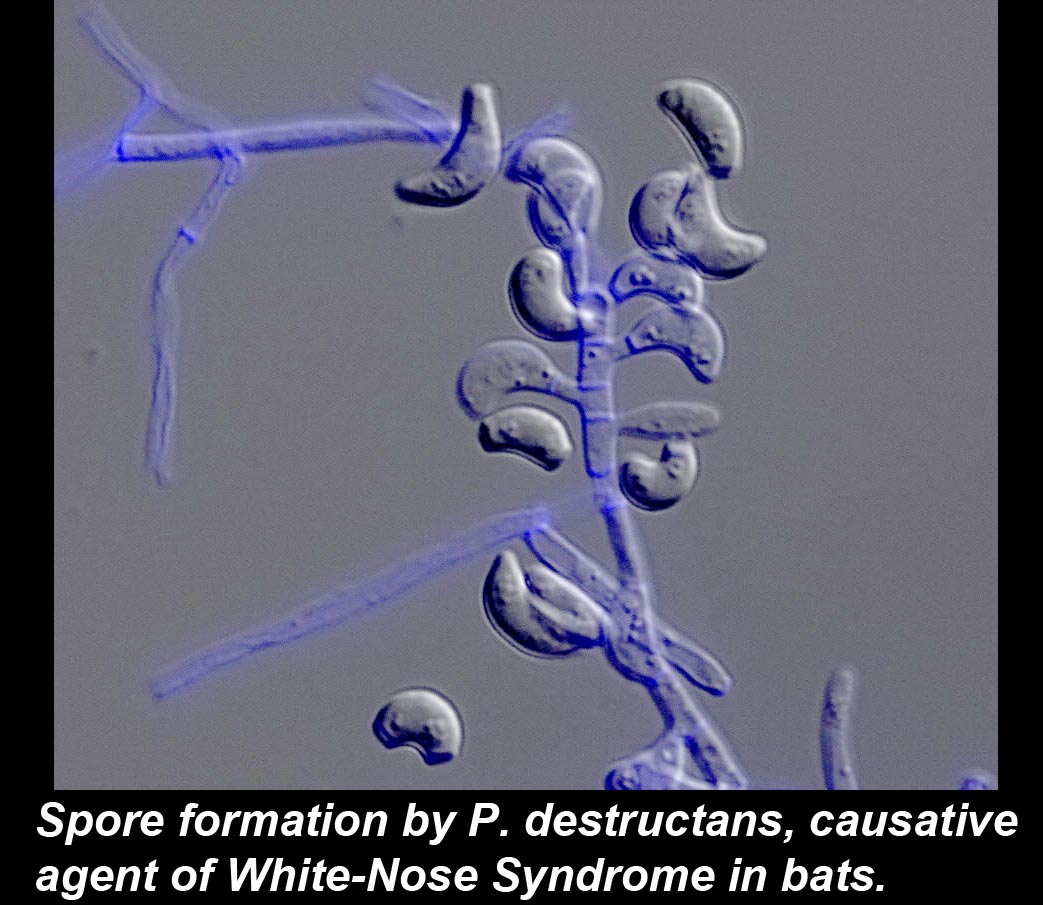| RESEARCH | PUBLICATIONS | PEOPLE | LAB DATA | MICROBIOFILMS | LINKS |
|---|
HUMAN FUNGAL PATHOGENS
Candida albicans is a fungus found inhabiting the gastrointestinal tract of most of the population. However, it is also a prevalent opportunistic pathogen, capable of causing debilitating mucosal infections and life-threatening systemic infections. We are using a variety of techniques to address how C. albicans acts both as a commensal and as a pathogen, including genetics, genomics and molcular biology techniques. This includes analysis of multiple clinical isolates from C. albicans and related Candida pathogens.
EVOLUTION OF SEXUAL REPRODUCTION
The regulation of sexual reproduction has been rewired multiple times between related yeast species. We seek tounderstand the changes in genetic circuits that have reprogrammed sexual reproduction, and the possible adaptive advantages of these changes. In particular, we are interested in the sexual programs of species such as C. albicans for which a conventional meiosis has yet to be discovered but an alternative 'parasexual' program exists.
EMERGING FUNGAL PATHOGENS
Recent outbreaks of emerging fungal diseases are of concern as they have the potential to drive host species to extinction. We are therefore interested in understanding the biology of diseases such as White-Nose Syndrome which has caused the destruction of bat populations in North America. The disease is caused by the fungus Pseudogymnoascus destructans yet the mechanism of pathogenesis has yet to be elucidated.